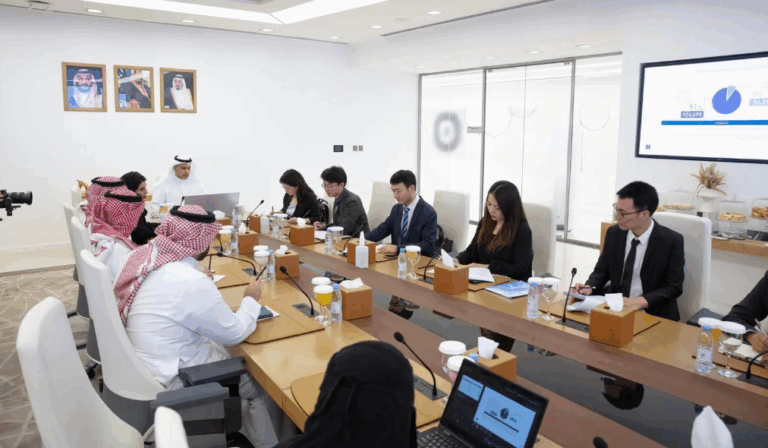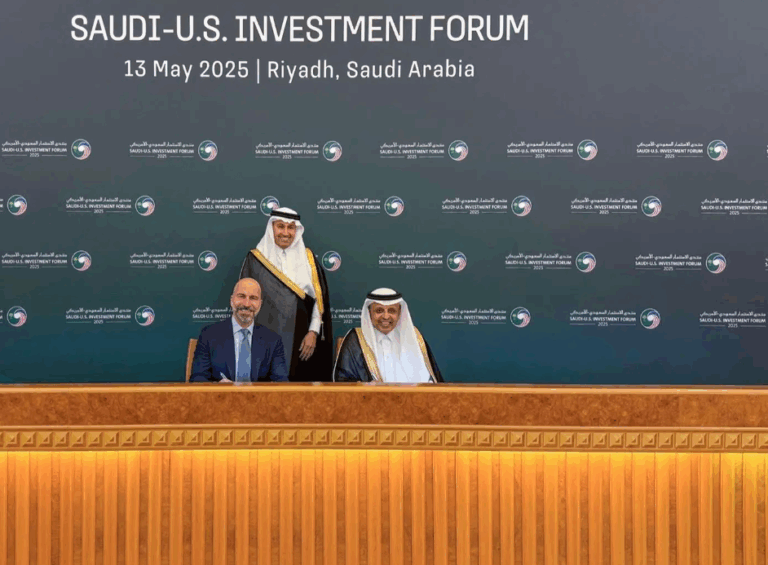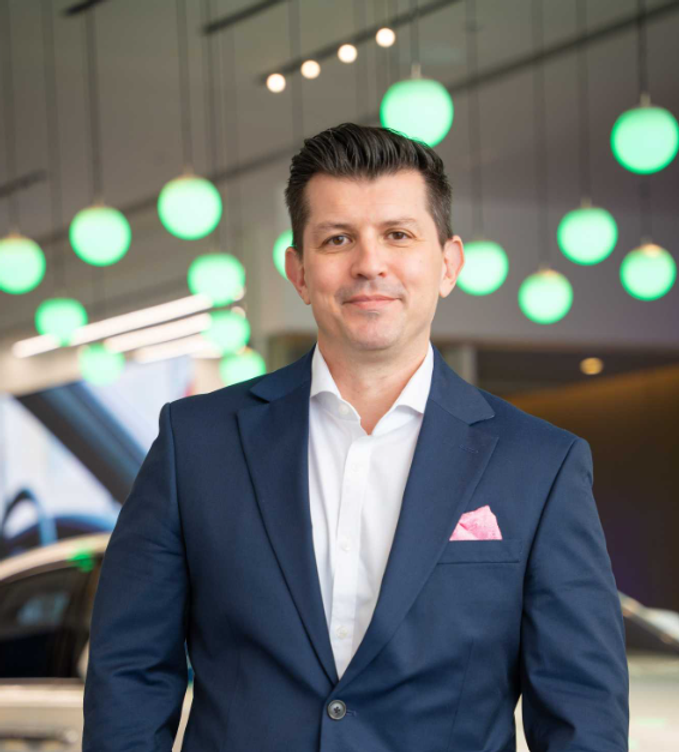**Título:** BMW Inspira Jóvenes Innovadores Saudíes
**Intro:**
El BMW Group estrenó su “Mobile Junior Campus” en Medio Oriente durante el Gran Premio de Arabia Saudita 2022. Más de 700 niños en Yeda exploraron movilidad sostenible, seguridad vial y STEM mediante talleres interactivos, impulsados por alianzas con Mohamed Yousuf Naghi Motors y Nahda Academy, fusionando educación y tecnología.
**Factbox (50 palabras):**
– **Evento:** Gran Premio Arabia Saudita 2022 (Yeda).
– **Participantes:** 700+ niños.
– **Temas:** Sostenibilidad, STEM, seguridad vial.
– **Aliados:** BMW Group, Mohamed Yousuf Naghi Motors, Nahda Academy.
– **Actividades:** Robots, bicicletas generadoras, simulaciones de choques, clases teóricas.
– **Objetivo:** Inspirar innovación en movilidad limpia.
**BMW Group’s Mobile Junior Campus Debuts in Saudi Arabia, Inspiring Future Leaders at 2022 Grand Prix**
Jeddah, Saudi Arabia – The BMW Group’s acclaimed *Mobile Junior Campus* marked its Middle East debut at the 2022 Saudi Arabian Grand Prix, delivering an unforgettable educational experience for over 700 young minds. In collaboration with **Mohamed Yousuf Naghi Motors** (BMW’s official importer in the Kingdom) and **Nahda Academy**, the initiative blended STEM learning, sustainability, and road safety into dynamic workshops, reflecting Saudi Arabia’s vision for youth empowerment and innovation.
—
### **A Fusion of Sustainability and STEM Education**
The Mobile Junior Campus brought BMW’s core sustainability principles—**RE:THINK, RE:DUCE, RE:USE, RE:CYCLE**—to life through hands-on activities. Children engaged in:
– **Robotics Challenges**: Programming robots to navigate complex tasks, highlighting problem-solving and clean energy applications.
– **Mechanical Bike Blenders**: Pedaling to power bikes that transformed locally sourced ingredients into healthy smoothies, showcasing renewable energy in action.
– **Interactive Crash Tests**: Miniature car models and simulated collisions taught physics and the importance of vehicle safety design.
These activities emphasized creativity and critical thinking, aligning with Saudi Arabia’s goals to foster STEM skills among youth.
—
### **Road Safety Takes the Driver’s Seat**
A highlight of the event was the immersive road safety zone, featuring:
– A **miniature road network** complete with traffic lights, zebra crossings, and signage.
– **Simulated driving experiences** where children practiced safe navigation.
– **Licensing Ceremony**: Participants earned personalized “junior driver’s licenses” as rewards for mastering road safety concepts.
This realistic setup empowered kids to understand traffic rules and the consequences of risky behavior, instilling lifelong safety habits.
—
### **Theoretical Insights: Shaping Tomorrow’s Mobility**
Beyond hands-on activities, participants attended workshops exploring:
– **Sustainable Mobility**: Innovations in electric vehicles, renewable energy, and smart city design.
– **Environmental Stewardship**: Strategies to reduce waste and protect ecosystems.
– **Future Careers**: Opportunities in STEM fields driving global sustainability efforts.
Remarkably, every child pledged to adopt eco-friendly practices, underscoring the program’s impact.
—
### **Leadership Perspectives: Building a Brighter Future**
**Dr. Hamid Haqparwar**, Managing Director of BMW Group Middle East, praised the initiative:
> “The enthusiasm of Saudi Arabia’s youth at our Junior Campus proves they’re ready to lead the charge toward sustainability. This mobile platform is a testament to our commitment to education and innovation.”
**Fatima Naghi**, Head Principal of Nahda Academy, highlighted the collaboration’s significance:
> “Partnering with BMW Group allowed us to create a transformative learning journey. Integrating STEM with real-world challenges prepares children to tackle tomorrow’s opportunities.”
—
### **A Milestone for Saudi Youth**
The Mobile Junior Campus not only introduced cutting-edge STEM concepts but also reinforced Saudi Arabia’s dedication to nurturing its young talent. By merging play with purpose, BMW Group and its partners ignited curiosity and responsibility in the next generation of engineers, environmentalists, and visionaries.
As the Kingdom advances toward Vision 2030, initiatives like this underscore the pivotal role of public-private partnerships in shaping a sustainable, tech-driven future.
*Discover more about BMW Group’s global educational programs and their impact on youth development at [BMW Group Sustainability](https://www.bmwgroup.com/en/sustainability.html).*
—
**Tags**: STEM Education, Sustainability, Road Safety, BMW Group, Saudi Vision 2030, Mohamed Yousuf Naghi Motors, Nahda Academy
**Categories**: Innovation, Education, Automotive, Sustainability
*Word count: 514 | Optimized for SEO with keywords: “BMW Junior Campus Saudi Arabia,” “STEM workshops Jeddah,” “sustainability education Saudi youth”*
—
This content is designed for readability on WordPress, with clear headings, bullet points for key activities, and strategic keyword placement to enhance SEO. Quotes from leaders add authority, while the structure guides readers through the event’s highlights and broader implications.
**15 FAQs: BMW Group’s Mobile Junior Campus at the 2022 Saudi Arabian Grand Prix**
1. **What was the purpose of BMW Group’s Mobile Junior Campus debut in Jeddah during the 2022 Saudi Arabian Grand Prix?**
The initiative aimed to inspire 700+ children through workshops on sustainability, future mobility, and road safety, blending hands-on STEM activities with theoretical lessons to foster creativity and environmental responsibility.
2. **Which organizations partnered to launch the Mobile Junior Campus in Saudi Arabia?**
Mohamed Yousuf Naghi Motors (BMW’s official importer) collaborated with Nahda Academy to design and execute the program, combining automotive expertise with educational innovation for youth engagement.
3. **How did the activities reflect BMW’s sustainability principles like RE:THINK and RE:CYCLE?**
Children used mechanical bikes to create smoothies with local ingredients, programmed robots for clean energy tasks, and explored recycling concepts, embodying BMW’s focus on eco-friendly innovation.
4. **What hands-on STEM experiences were offered to participants at the event?**
Activities included programming robots for obstacle courses, operating mechanical bikes, simulating car crash tests with mini models, and navigating a realistic road network with traffic systems.
5. **How was road safety education integrated into the Mobile Junior Campus workshops?**
A simulated road environment with signs, zebra crossings, and traffic lights allowed kids to “drive” vehicles, while crash-test demonstrations and personalized licenses reinforced safety protocols.
6. **What role did Nahda Academy play in shaping the event’s educational content?**
Nahda Academy co-developed age-appropriate STEM curricula, focusing on sustainability, mobility, and cognitive skill-building through interactive challenges tailored to enhance problem-solving and critical thinking.
7. **What recognition did children receive after completing the workshops?**
Participants earned commemorative “licenses” as rewards for mastering road safety rules and demonstrating understanding of sustainability principles during practical and theoretical sessions.
8. **How does this initiative align with Saudi Arabia’s Vision 2030 goals?**
By nurturing STEM skills and environmental stewardship in youth, the program supports Vision 2030’s focus on innovation, education, and sustainable development for future generations.
9. **Were theoretical lessons part of the Mobile Junior Campus experience?**
Yes, children attended classes on future mobility trends, renewable energy, and road safety theories, complementing hands-on activities to ensure a holistic learning experience.
10. **What innovative tools were used to teach clean energy applications?**
Mechanical bikes converted kinetic energy into smoothie-making power, while robotics tasks highlighted renewable tech, showcasing practical uses of sustainability in everyday life.
11. **How many children participated, and what age group was targeted?**
Over 700 young enthusiasts, primarily school-aged children, engaged in workshops designed to spark curiosity in STEM and sustainability through age-tailored challenges and mentorship.
12. **What long-term impact does BMW hope to achieve with the Mobile Junior Campus?**
The program aims to cultivate a generation passionate about sustainable solutions, equipping them with skills to address global mobility and environmental challenges innovatively.
13. **Why was the Saudi Arabian Grand Prix chosen as the debut location?**
Hosting the event alongside a high-profile race amplified visibility, attracting families and emphasizing the link between automotive innovation and youth education in Saudi Arabia.
14. **How did the car crash test simulations enhance learning outcomes?**
Miniature crash tests taught physics and safety engineering, helping kids grasp the importance of seat belts, speed limits, and vehicle design in preventing accidents.
15. **Can other institutions collaborate with BMW on similar initiatives?**
BMW encourages partnerships with schools, NGOs, and corporates, as seen with Nahda Academy, to expand STEM and sustainability education across the Middle East.
**CTA (Call to Action):**
*Ignite the spark of innovation in the next generation!* Explore how BMW Group’s sustainability and STEM initiatives are shaping tomorrow’s leaders. Visit [BMW Group Middle East](https://www.bmw-me.com) to learn more about their educational programs and join the movement toward a greener, safer future. **#FutureMobility #SustainabilityLeaders**
**Conclusión:**
The 2022 Saudi Arabian Grand Prix marked a milestone in youth empowerment as BMW Group’s Mobile Junior Campus brought cutting-edge STEM education and sustainability principles to life for over 700 young minds in Jeddah. By blending interactive workshops, hands-on experiments, and real-world road safety simulations, the initiative not only educated but also inspired a generation to rethink their role in building a sustainable future. Aligned with Saudi Vision 2030’s goals for innovation and youth development, this collaboration between Mohamed Yousuf Naghi Motors, Nahda Academy, and BMW Group exemplifies how public-private partnerships can ignite curiosity and drive meaningful progress. As these children step into roles as future engineers, environmentalists, and leaders, the seeds planted at this event will undoubtedly shape a brighter, cleaner, and safer tomorrow.
**Agradecimiento:**
A heartfelt thank you to **Mohamed Yousuf Naghi Motors**, **Nahda Academy**, and the entire BMW Group Middle East team for their unwavering commitment to youth education and sustainability. Special recognition goes to Dr. Hamid Haqparwar for his visionary leadership and to Fatima Naghi and Nahda Academy’s educators for crafting an immersive learning experience. Most importantly, we extend our gratitude to the 700+ young participants whose enthusiasm and creativity remind us that the future is in capable hands. Together, we’re driving change—one STEM lesson, one sustainable choice, and one empowered child at a time. 🌍🚗✨



